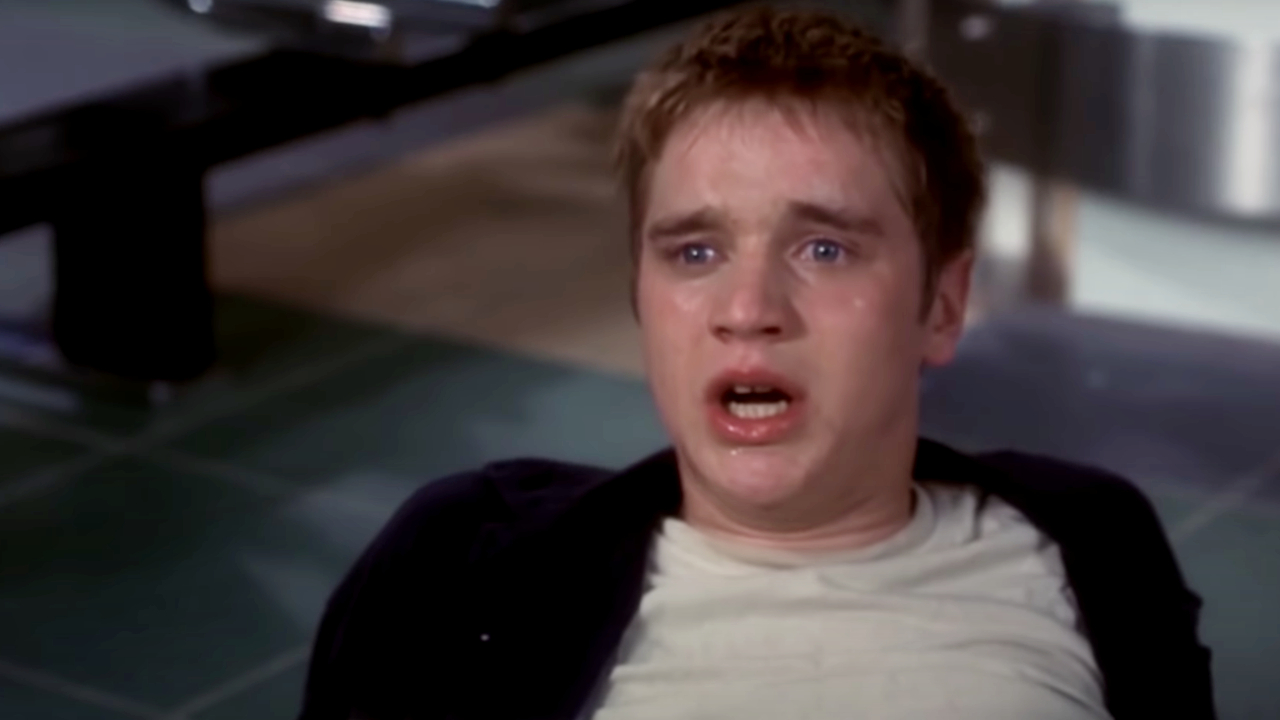Feel good and forget about it, that seems to be the goal of Larry Crowne, and it’s something this Tom Hanks directed film accomplishes with flourish. As light and airy as a summer breeze, Larry Crowne wafts across the screen with amiable stars giving a series of effortless performances, in a simple little story more interested in pushing you out the door with a smile than leaving you with anything substantive or genuine. That it pulls this off while building itself around the depressing and heady subject of unemployment in a down economy, makes the whole thing almost admirable. It’s as if Hanks, who also co-wrote the film with My Big Fat Greek Wedding’s Nia Vardalos, saw Up in the Air and thought, “gee I wish this movie wasn’t so depressing.”
So here’s Larry Crowne, the story of a man who loses everything and doesn’t really seem to mind that much. Tom Hanks plays Crowne and when we meet him, he’s being fired from his lower-level management position at a local Wal-Mart clone. Divorced two years ago, Crowne now lives alone in a big empty house. Before that Friday morning firing his job was all he had. Now Larry’s unhappy, but he’s not the kind of guy to let himself get down about it. His lowest point is a sort of frowny conversation with a next door neighbor, after which he sets to work restructuring his life. Unable to find other employment in a recession, this forty-something, retired Navy cook decides to attend community college.
Larry trades in the gas guzzling SUV he can no longer afford for a fuel efficient scooter, and on his first day of school he’s immediately adopted by a gang of scooter-riding hipsters. In his first class he meets a grumpy, unavailable speech teacher, who since she’s played by Julia Roberts, you know won’t remain grumpy and unavailable forever. The movie unfolds as Larry improves himself and in the process, simply by showing up and being all the Tom Hanks that he can be, helps improve everyone around him. While it’s never exactly clear what Larry’s collegiate end game is, whether he’s going for a degree in hopes of finding some sort of corporate employment or just going for overall personal improvement, it doesn’t matter. Larry goes and things in his life get better.
What’s really important about this movie is the ways in which things get better. Larry’s life improves not because he finds a better job or solves his financial problems, or any of the things that we probably all associate with being standard signs of life success. In that respect, Larry’s life gradually gets worse. He gets a smaller car, a smaller apartment, a far worse job. He has to sell off most of his stuff, eventually you just know he’s going to lose that house. But none of it matters. Every time Larry unloads one of those big, expensive, material things which have been weighing him down it’s as if another little weight is lifted off his shoulders.
Remember I said Larry Crowne wasn’t all that concerned with saying anything substantive, and that’s true. Yet it doesn’t mean the movie doesn’t have anything substantive to say. It means only that saying it is of secondary importance to a film which stays firmly rooted throughout its running time in the world of smile and feel good. Still, there is something rather pleasant and wonderful woven into the movie for anyone on the look out for it. It’s not a message against consumerism, at least not exactly. It’s merely an acknowledgement of a simple truth: That you can be happy without stuff as long as you have people to share your life with. Had Larry not taken up with that hipster scooter gang, maybe he’d have missed his flat screen TV a lot more, on lonely nights stuck at home with nothing to do. For him though, it all works out perfectly. Every time Larry’s forced to give up a possession, the hole it leaves in his life is filled by someone to hang out with or something new to do.
Larry Crowne doesn’t live in reality, of course, and if you think about it more than a second or two the whole movie’s kind of phoney. Sell off your Honda Civic to buy a Harley and odds are you won’t be instantly adopted by a loveable gang of motorcycle-riding Goth kids. I’m not sure I cared about any of that, while I actually sat there watching it. It may not be real, but Larry Crowne is a pleasant and uplifting little fantasy, 90 minutes of empty smiles for anyone out there struggling to make ends meet in an America where there are fewer and fewer ways to earn a living. Most of what Larry Crowne has to say won’t stick with you, but maybe that happy, breezy feeling you’ll get while watching it will.












